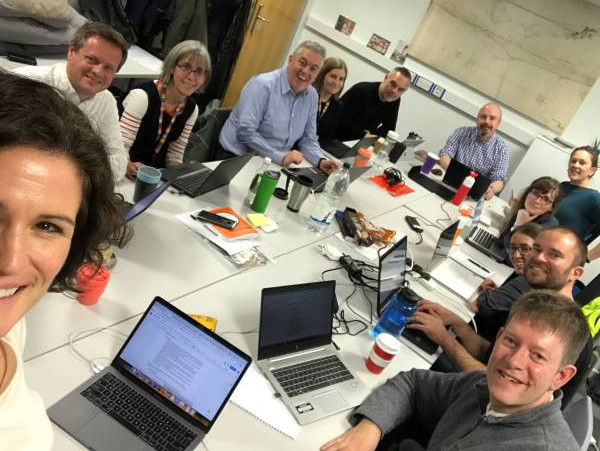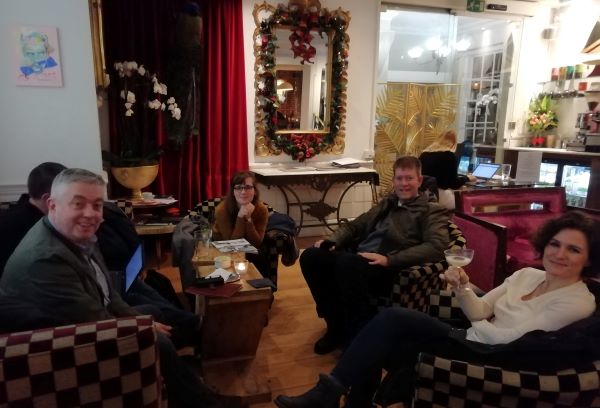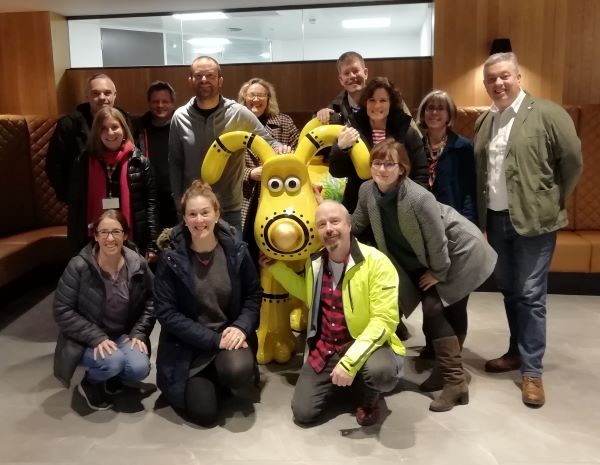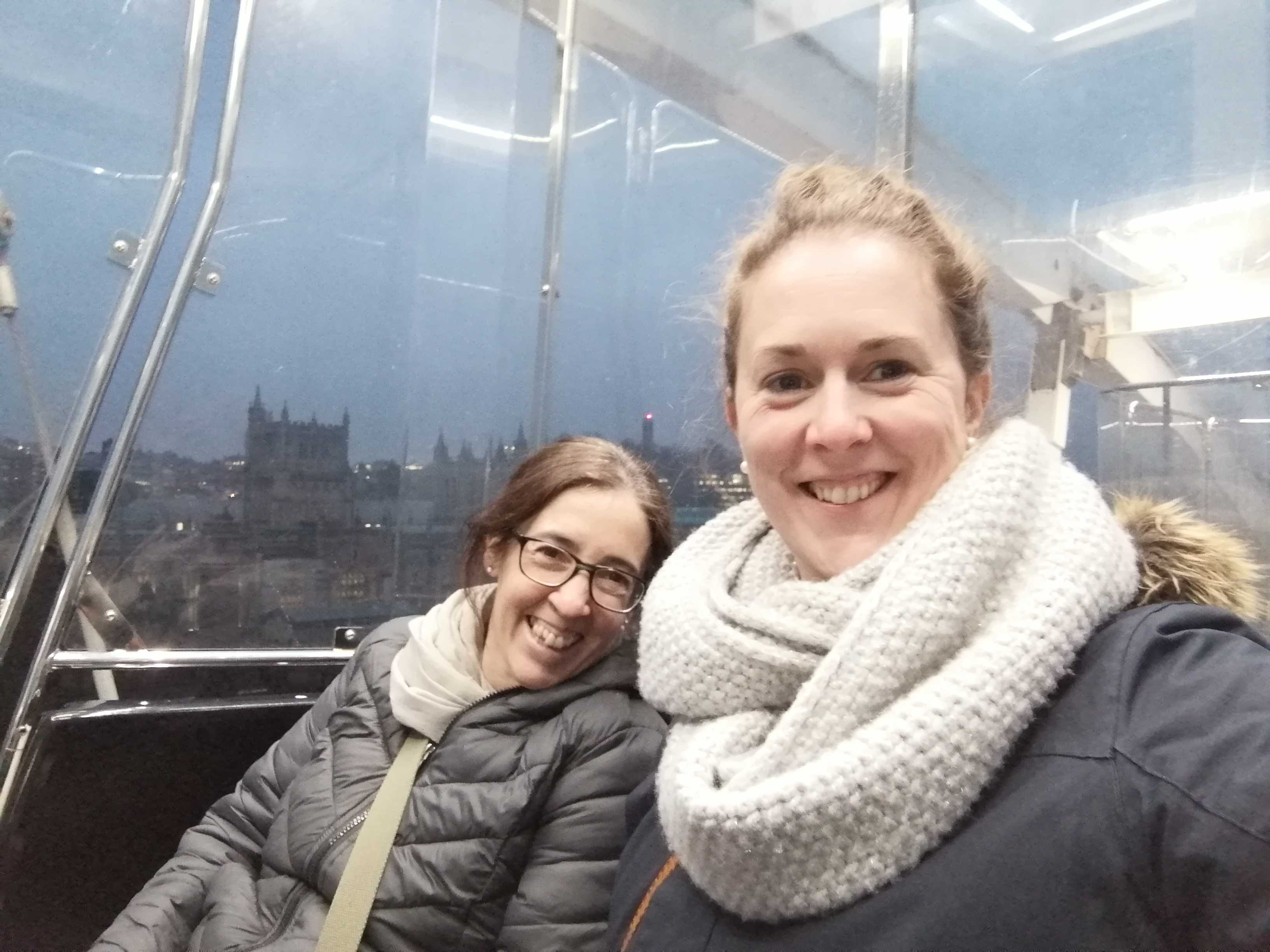Many years ago I ran a half marathon in Bristol but running a book sprint there was an entirely different proposition.
It could be argued however that both were exhausting and rewarding in equal measure!
Last week, DPC staff joined with colleagues from the University of Bristol and a small group of invited experts to work on a new resource for DPC Members - a Digital Preservation Policy Toolkit.
A request for help
The event came about as a result of a conversation with the University of Bristol in the summer. They had a bit of money to spend and wanted to use it to create a digital preservation policy for the University of Bristol.
This isn’t the first time we’ve been asked by our members for help with creating a preservation policy and we didn’t want to disappoint. We decided however to approach this request in a slightly different way. Could we support the University of Bristol whilst also creating a resource that would be more widely useful to our members?
It was almost certainly my colleague Paul Wheatley’s idea to turn this request into a book sprint event. A book sprint is a method of creating content collaboratively in a very short period of time. This approach had successfully been used for the Business Case Toolkit and the latest revision of the Digital Preservation Handbook.
Our intention was to get a small group of people working collaboratively over the course of 3 days and end up with both a draft digital preservation policy for the University of Bristol and a preservation policy toolkit that could be made available to other DPC Members.
Gathering the troops
We were really pleased that the University of Bristol agreed to this slightly off-the-wall suggestion and were able to host the event, providing space and (most importantly) lunches for the participants. They were also able to bring along 5 willing members of staff to join the event to focus on crafting a policy for the University of Bristol.
Next we had to invite some experts along to help us do the writing of the toolkit, so we sent out some invitations. The gist of the email went a bit like this:
“Join us in Bristol for 3 days for an exciting opportunity to create a new resource. Bring your knowledge, experience and enthusiasm. It will be fun (and we will supply you with food and drink)!”
Our powers of persuasion worked surprisingly well and a small group of experts was rapidly assembled. The group was joined by a few of my DPC colleagues, hotels and trains were booked and we were good to go!
Day 1: Setting the scene
We descended on the University of Bristol on Tuesday and after an icebreaker, and a quick description of what we wanted to achieve, we got cracking.
Much of the first day was spent considering what makes a good policy (and conversely, what doesn’t work so well). The 13 of us attending the event had done a little bit of homework and had come ready to talk about a preservation policy that we particularly liked. Going through this process, looking at several policies and articulating what we liked about one of them was a useful introduction and got us all thinking.
There was a surprising consensus around the table as to which policies we liked best. Our top picks were from the University of Edinburgh and Bodleian Libraries.

Photo credit: Natalie Harrower
This led to a broader discussion about what makes a good policy and this discussion really set the tone for the rest of the book sprint. The group were in agreement that there was an optimal length for a policy (not too long) and that the policy should be clear and concise and easy to read. It shouldn’t include long paragraphs of text but should be bulleted with numbered sections that were easy to reference. It shouldn’t include loads of technical details or OAIS terminology, but should be quite high level and easy to understand (even for those who are not directly involved in this field of work).
A preservation policy should be something that is read, not something that just ticks a box and is filed away never to be seen again. Taking this one step further, the policy itself could be an internal advocacy tool for digital preservation. If written well the policy could really help sell digital preservation.
You may have noticed a few tweets about the event last week punctuated by extended periods of silence as we actually got our heads down and focused on the task at hand!
Day 2: Writing the toolkit
We had done a lot of talking on that first afternoon. On the second day we realised that the preservation policy toolkit wasn’t going to write itself.
We decided to get our heads down and start writing.
A group of us had already started to consider what the essential headings are for a preservation policy so we had that framework to start working with. Some of us started writing parts of the toolkit, taking a heading and writing some guidance for creating content under that heading. Good examples were selected from existing policies to illustrate the guidance. We employed the booksprint methodology, giving people short bursts of time to write, and then passing the section on to someone else to edit/expand/review. We tried to ensure each section was authored by at least 3 people, so that a good level of good practice guidance was captured.
The group from Bristol used this time to consider some key questions we had put to them about their preservation policy and in particular to discuss what the scope of their policy should be.
By lunch time we had built up enough guidance to enable the University of Bristol to start testing the toolkit, using the guidance and the examples provided to write their own policy. They also chose to use a similar methodology, taking a heading each and having a go at writing before circulating to colleagues for review and update.
It all felt incredibly productive!
That afternoon there was a continuation of this work but alongside this, writing also began on the wider content of the Preservation Policy Toolkit – for example the text that describes the process of creating a policy. We agreed a contents page and a set of headings and people just dived in and started writing.
I was amazed at how quickly this document moved from a rough outline to a substantial document.
We rewarded ourselves that evening with good food and drink and much merriment.

Photo credit: Jenny Mitcham
Day 3: Bringing it all together
Much of the writing had been done on day two, so day three was all about filling in the gaps, reviewing text (including the draft policy that had been created by the University of Bristol), and checking we had a good spread of examples.
We also did some work on what we considered to be the most challenging section of a preservation policy, the policy principles. This section is often the longest and varies widely between institutions. We wanted to provide some useful advice for Members but we realised we could spend 2 whole days debating this section alone!

Photo credit: Jenny Mitcham
We came up with a solution loosely based on the sections of DPC RAM that we hope will provide a useful starting point. It was great to see the University of Bristol taking this framework and developing it further to meet their needs.
At 4pm we wrapped up the book sprint. Job done!
Me and colleague Sarah celebrated with a turn on the Big Wheel on the way back to the train station.

Photo credit: Sarah Middleton
So, how did it go?
I think we all got something out of the event and it was good to have the chance to focus on one task as a group. Here are a selection of comments from some of the participants:
“A productive and enjoyable few days” - Adrian Brown, UK Parliamentary Archives
“I learnt a lot last week and really enjoyed this way of working with you all – I am impressed by how much writing and thinking we got done over just a few days.” - Edith Halvarsson, Bodleian Libraries, University of Oxford
“I learned a lot from all the comparing and thinking and discussion and distilling.” - Natalie Harrower, Digital Repository of Ireland
“It was an intense but productive 3 days and we (Bristol folk) found it invaluable to have so much knowledge and expertise in the room.” - Debra Hiom, University of Bristol
“We at the DPC all thoroughly enjoyed ourselves, and are very happy that we achieved what we set out to do as well – a draft policy for the University of Bristol, and a draft toolkit for DPC members. Quite an achievement!” - Sarah Middleton, Digital Preservation Coalition
What happens now?
It was a busy and creative few days and we produced a lot of content. We do need a bit of breathing space now to review it all, resolve a few remaining issues and apply a bit of editorial control to the text. We anticipate we should be able to get the toolkit ready to publish in the first quarter of 2020 so watch this space.
Do you want to write a digital preservation policy?
We’d love to have some DPC Members lined up to road test the Preservation Policy toolkit when we release it next year. If you are about to embark on writing a preservation policy for your institution or feel your old preservation policy is due for a substantial update, do let us know. We’d be keen to find out how it works for you and would love to hear your comments and feedback.


















































































































































Comments